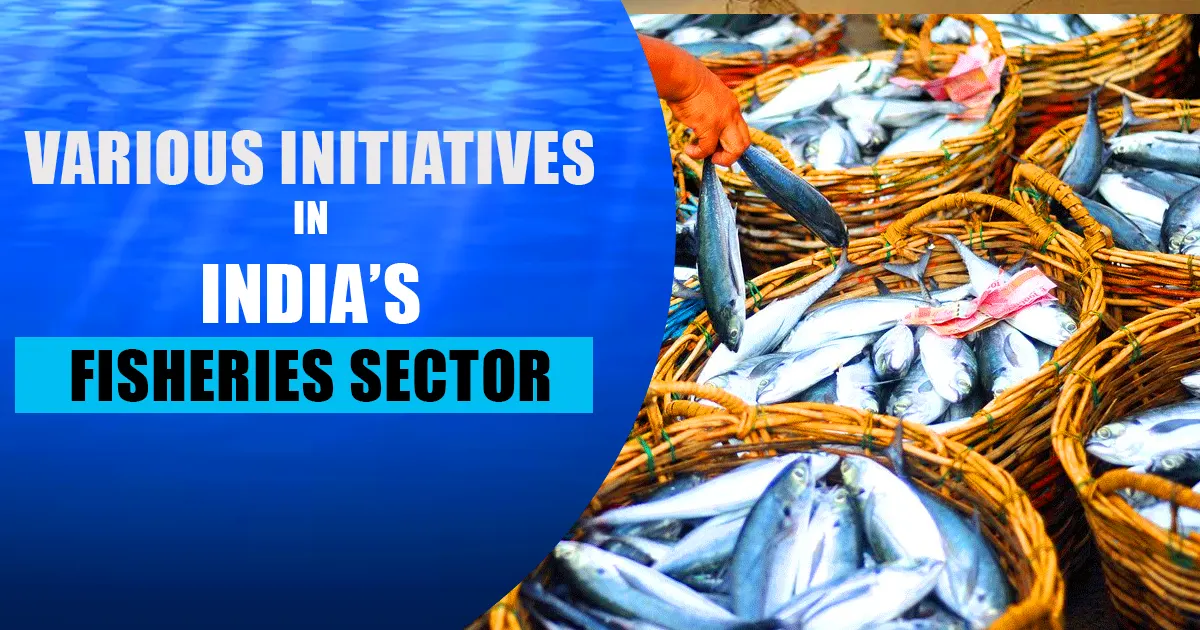
Context:
On World Fisheries Day, the Indian government unveiled multiple projects aimed at boosting the fisheries sector in India, focusing on sustainability, innovation, and improved management practices.
Key Initiatives in the Fisheries Sector
- Marine Fisheries Census 2025:
- Digital Implementation: The fifth Marine Fisheries Census will be entirely digital, using mobile apps and virtual servers to collect and process real-time data, increasing efficiency by 80%.
- Scope and Coverage: The census will span India’s entire coastline, from Lakhpat in Gujarat to North 24 Parganas in West Bengal, and from Bitra Island in Lakshadweep to Campbell Bay in the Andaman & Nicobar Islands.
- Data Collection: The census will gather comprehensive data on household sizes, socio-economic status, and the engagement of fisherfolk in the industry, providing a clear picture of the sector’s dynamics.
- National Plan of Action on Sharks:
- Sustainable Shark Management: This plan, modeled on the FAO’s International Plan of Action for Sharks, focuses on shark conservation and management to ensure sustainable fishing practices.
- Key Components: The plan includes:
- Improved data collection on shark populations.
- Increased resource allocation to support conservation efforts.
- Enhanced inter-state coordination to ensure uniformity in conservation measures.
- Building capacity in species identification and habitat mapping.
- Traditional Knowledge Utilisation: The plan integrates traditional knowledge from fishermen to aid in conservation efforts, recognizing the value of indigenous practices in managing marine ecosystems.
- Regional Plan of Action on IUU Fishing:
- Collaborative Effort: India, along with Sri Lanka, Bangladesh, and the Maldives, has endorsed a Regional Plan of Action to combat Illegal, Unreported, and Unregulated (IUU) fishing in the Bay of Bengal.
- Objective: This plan aims to prevent IUU fishing through coordinated regional efforts, strengthening governance and enforcement across the region to ensure sustainable fishing practices.
- GloLitter Partnership Project:
- Marine Plastic Litter: The International Maritime Organization (IMO)-FAO GloLitter Partnership Project addresses the critical issue of marine plastic litter.
- Implementation: As part of the project, Standard Operating Procedures (SOPs) have been introduced for retrofitted LPG kits, promoting energy-efficient and low-cost marine fishing fuels to reduce environmental impact and minimize plastic waste in the oceans.
- Coastal Aquaculture Authority’s New Single Window System:
- Online Registration: The newly introduced Single Window System enables online registration of coastal aquaculture farms, streamlining administrative procedures and making it easier for entrepreneurs to set up and operate.
- Voluntary Carbon Market: An MoU has been signed to implement a framework for the Voluntary Carbon Market, focusing on carbon-sequestering practices within the fisheries sector, supporting India’s goals for carbon neutrality and environmental sustainability.




